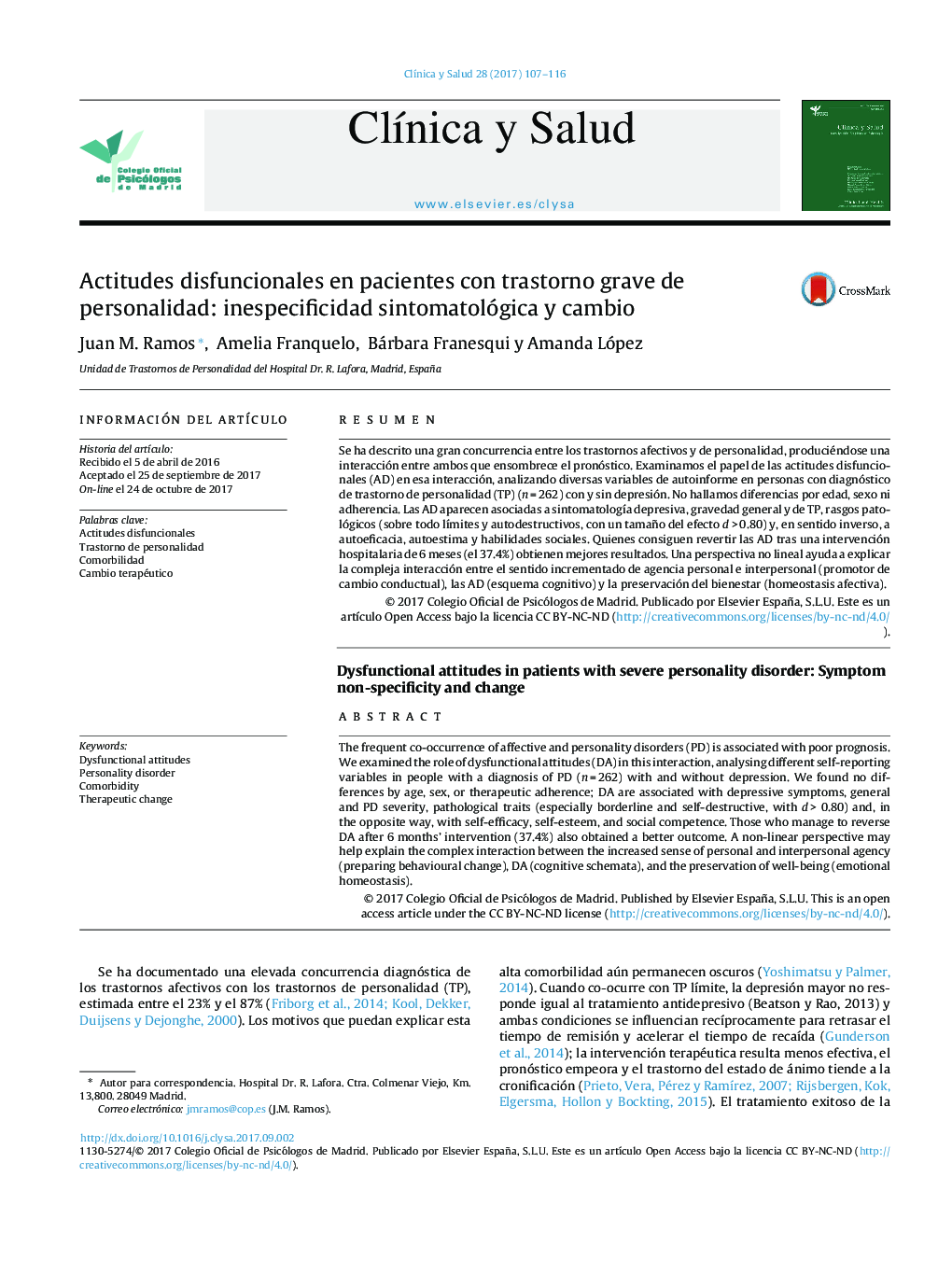| Article ID | Journal | Published Year | Pages | File Type |
|---|---|---|---|---|
| 7263204 | Clínica y Salud | 2017 | 10 Pages |
Abstract
The frequent co-occurrence of affective and personality disorders (PD) is associated with poor prognosis. We examined the role of dysfunctional attitudes (DA) in this interaction, analysing different self-reporting variables in people with a diagnosis of PD (n = 262) with and without depression. We found no differences by age, sex, or therapeutic adherence; DA are associated with depressive symptoms, general and PD severity, pathological traits (especially borderline and self-destructive, with d > 0.80) and, in the opposite way, with self-efficacy, self-esteem, and social competence. Those who manage to reverse DA after 6 months' intervention (37.4%) also obtained a better outcome. A non-linear perspective may help explain the complex interaction between the increased sense of personal and interpersonal agency (preparing behavioural change), DA (cognitive schemata), and the preservation of well-being (emotional homeostasis).
Keywords
Related Topics
Social Sciences and Humanities
Psychology
Clinical Psychology
Authors
Juan M. Ramos, Amelia Franquelo, Bárbara Franesqui, Amanda López,
